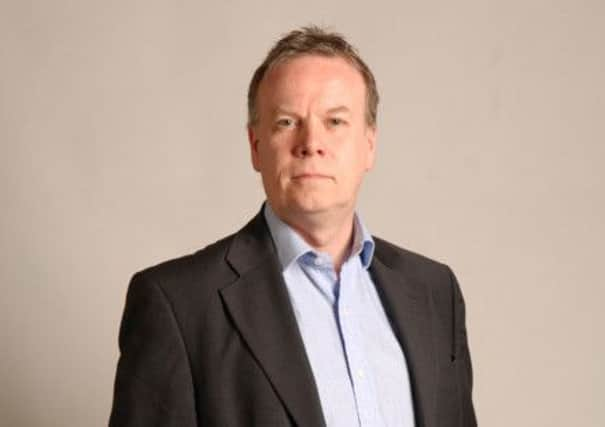Terry Murden: Unwise to put faith in bank promises


Of course, it was Co-op. The one that claimed its mutual ownership was more righteous than those banks with nasty shareholders and which said it would not get into the sort of mess that brought down the big banks. Well, not until it did get into the same sort of mess, which cast doubt over its entire banking operations.
Then we had Clydesdale and Yorkshire banks (essentially one and the same) claiming they were not like other banks and should therefore be trusted to look after customers’ interests. They were saying this even when they knew they had made a massive mortgage miscalculation that led last week to an £8.9 million fine and a total compensation and penalty package of £42m.
Advertisement
Hide AdAdvertisement
Hide AdPrivate equity firms Corsair Capital and Centrebridge and the fund manager RIT are buying the 308 RBS branches in England and Wales and six NatWest branches in Scotland. They are supported by the Church of England which is taking what is thought to be a 10 per cent stake in the new venture. It will operate under the revived Williams & Glyn’s brand, last seen in 1986, and will have a 2 per cent share of current accounts and 5 per cent of the small business market.
But despite its church-backing, the consortium cannot afford to adopt a holier than thou position in relation to its peers. The Archbishop of Canterbury Justin Welby got himself in a tangle after criticising payday lenders only to find that the church was an investor in a private equity fund that backed Wonga.com.
These thoughts aside, the new banking landscape is now emerging, though ironically with some old names. Ministers have fought to break the old monopolies and replace the relentless drive for profit with a return to simpler banking. To that extent, the reappearance of TSB and Williams & Glyn’s on the high street will be seen as a triumph of politics over commerce.
A new regulatory regime is also determined to stamp out previous bad practice to ensure banking reclaims its lost reputation for prudence and professionalism.
But no-one should get carried away with all this. It is one thing to promise good behaviour and to put systems in place to police it. But vanity and greed are part of the human condition and can never be banished entirely.
Will Royal Mail shares deliver?
Politicians are not renowned for getting things done quickly if they can spend a year or two in consultation processes and committee meetings. So the speedy delivery of the Royal Mail privatisation is a bit of a turn up.
Of course, it is driven by a desire to wrongfoot the Communication Workers Union, which is organising a strike and whose ballot does not close until the day after trading in the shares begins on 15 October.
While the two sides engage in this latest dispute, private investors have only until 8 October to apply for shares with a minimum application of £750. Already there are reports of a strong demand, and this may encourage the government to look for a price at the top end of the 260p to 330p range, valuing the business at between £2.6 billion and £3.3bn.
Advertisement
Hide AdAdvertisement
Hide AdDemand is driven largely by the high yield of up 7.7 per cent and coincides with a fall in the value of high-yielding utilities such as Centrica following Labour leader Ed Miliband’s threat to freeze energy prices.
But the Royal Mail flotation prospectus also comes with a health warning. Its 445 pages contains a long list of potential risks to the business, the biggest being the ever-present threats of industrial action.
Carney clears the picture
Bank of England governor Mark Carney’s comments to two newspapers last week were refreshingly candid and provide further evidence of a more transparent regime in Threadneedle Street.
Carney, who has given a long-term pledge on interest rates, said pumping more money into the economy would remain an option but he did not see the case for it with the recovery taking hold.
The Canadian, who took over in July, is quickly removing the smoke and mirrors that normally leave economists, markets and commentators trying to second guess the bank’s next move.
Twitter: @TerryMurden1